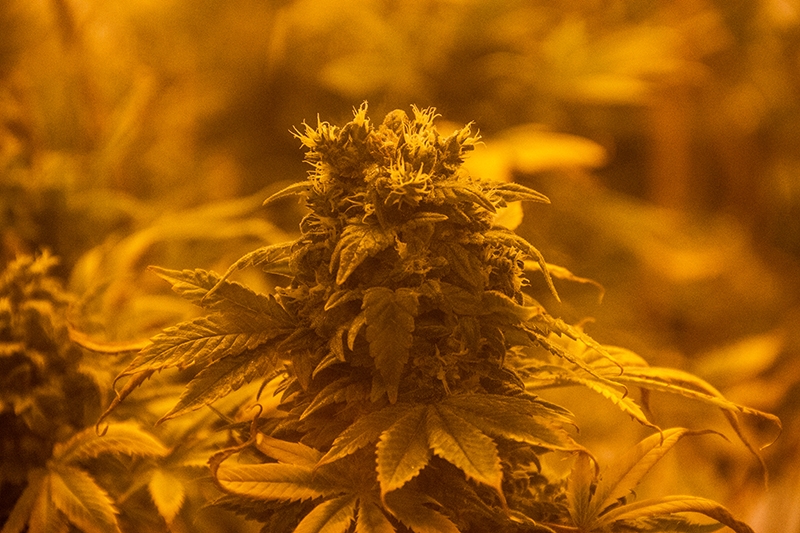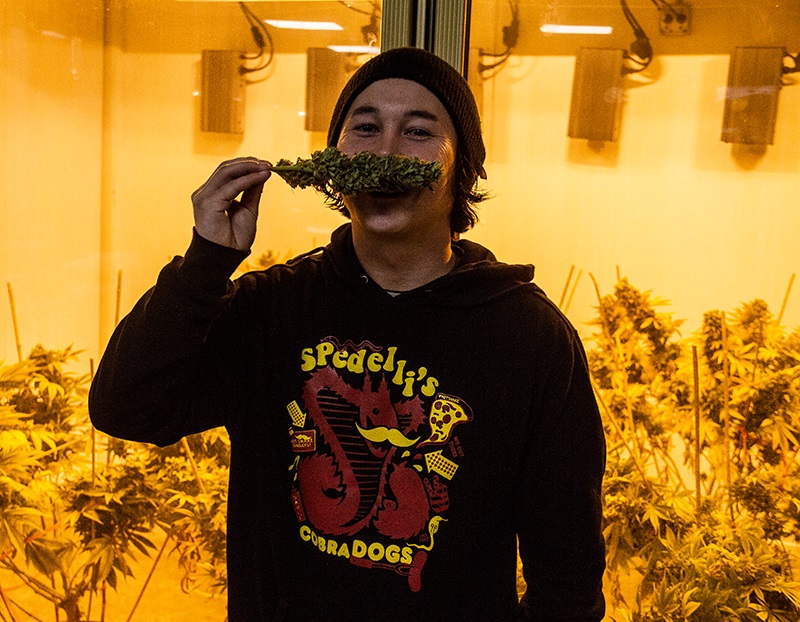The Buds Next Door: The First Month of Legalized Cannabis in Colorado
Community
Recreational Marijuana is upon America, living its first weeks under the scrupulous eyes of the world and government. In the substance’s test state of Colorado, this 54-percent voter initiative has seen revenues stretching from $1 million in its first week to a rough total of $3 million during the month of January, and is projected to break tax records through marijuana’s first legal year. Clearly, there is ground to be covered here, so now we shed some light on the buds next door.
“Socially, it’s exciting for people to be able to go buy Marijuana legally, and there’s a lot of tourists here,” says Larisa Bolivar, founder of Denver’s first medicinal dispensary back in 2006 and a candidate for a Master’s Degree in public policy with concentration in national and international marijuana reform. “Financially, this is making much more money than people expected. The state government was projecting a tax revenue of $60 million to pay for new schools and a [marijuana] enforcement division, but now they’re projecting to make about $100 million. All of my research is live [happening right now], which is cool.”
Currently, this tax revenue is made up of 136 dispensaries and 178 cultivation facilities statewide, which strictly abide to a 600–700 page binder of state laws laid out in accordance to eight bullet points issued by the State Department following the implementation of Amendment 64:
•Preventing distribution to minors.
•Preventing sales revenue from going to criminal enterprises.
•Preventing diversion of marijuana to other states.
•Preventing violence and the use of firearms.
•Managing cultivation and distribution of marijuana.
•State authorized marijuana activity to prevent marijuana being used as a cover.
•Intoxication guidelines.
•Preventing the growing of marijuana on public land/possession or use on public property.
While the more straightforward laws apply to everyone, Colorado still differentiates between medical versus recreational retail shops to better define the test state. With a prescription, dubbed the red card, any patient 18-plus is free to enter medicinal-only stores to purchase any variety of the traditionally smoked strains or varieties of cannabis-infused edibles and waxes, which deliver a more concentrated experience. Regardless of the red card or needing to be 21-plus for purchase from a recreational distributor at a 15–20 percent tax bump, the Marijuana Inventory Tracking System (MITS) charges owners to register their plants with the state government and tracks where the harvest ends up—costs not counting licensing and overhead fees.
Cross Genetics is a remodeled 7-Eleven turned medical shop in Denver that specializes in homegrown crops emerging from the gutted fridges of convenience store days and is owned by Wendi Torres. “I wish that people could see marijuana for what it is. Marijuana helps with all sorts of pains: I have patients with cancer, HIV, migraines, back problems, etc. They come here for their medication,” says Torres, who currently qualifies for recreational retail and is exploring her options. “I have no problem with the recreational side, but I’m all for the medical.”

A local shop owner’s focus on branding imagery is not uncommon in these parts, especially when considering that state legalization goes unrecognized on a federal scale, detrimental primarily to the small business. “The image was very much an issue in legitimizing the face of marijuana to congress in DC,” says Bolivar, a North Virginia native who started her career on the East Coast. “When I was there, it gave me a different perspective from the outside looking in.
I was able to hear commentary from around the world. DC is nothing but a city full of embassies, and so you get a lot of perspective on people’s opinions. For DC law, when citizens vote, the United States Congress can overturn that law since DC doesn’t have statehood, therefore there’s no representation. When there’s still an element of Reefer Madness out there, you want to be careful about how you project yourself. The image that I would like to see prevail is something like wine, where normal, responsible people can partake.”
Grouping cannabis into the same loop as alcohol is a big power move, taking form on several platforms. While properties of marijuana are closely tied to the family of hops that go into beer, people in organizations like the Marijuana Policy Project (MPP) argue that marijuana is also safer than alcohol. This is a sentiment that’s, oddly enough, been attempting to work its motto into the hearts of NASCAR fans.
“Mason Tvert, our Director of Communications and Co-Director of the campaign to pass Amendment 64 in Colorado, came up with those ads,” says Morgan Fox, Communications Manager at the MPP, in regard to an attempted 2013 ad campaign that has since changed its strategy to promoting just outside of the races. “The ads did not get pulled until the ad company started getting complaints from anti-drug groups not associated with NASCAR or the Indianapolis Motor Speedway. It was unfortunate that they were pulled, since there is a lot of alcohol promotion at these events and our ads were merely pointing out that marijuana is a safer alternative,” says Fox. Bolivar and Fox stress a need for federal approval and relate the case back to American prohibition in the ’20s. “Colorado broke ground for marijuana. The best way to understand this from a Federal level would be when prohibition ended with Amendment 21. After Amendment 21 was passed, they still had to pass the Volstead Act a year later, which was the regulatory structure for alcohol. Marijuana is kind of similar, even though this is a state law—it was passed and then, a year later, the regulatory structure came in,” says Bolivar.
This lack of current Federal acknowledgement of the substance is also what threatens the local Colorado industry, despite the President’s voiced acceptance of Marijuana. “While it certainly is a good sign that the President is openly recognizing the scientific fact that marijuana is safer than alcohol, he should back it up by directing his subordinates to remove marijuana from the schedule of substances defined in the Controlled Substances Act. This would allow states to determine their own marijuana policies without federal interference, and would reflect the comparative safety of marijuana since alcohol is not on the schedule either,” says Fox.
Fox is referring to IRS laws that cut off dispensary owners who pay their federal taxes from receiving deductions. This, in turn, can cripple a business owner’s ability to work with banks and could eventually kill their livelihood. “At this moment, marijuana is only a huge money maker for the big players who were able to penetrate the market with big-money, personal investments. Otherwise, the marijuana industry right now doesn’t make money for most people. A lot of small businesses are struggling, selling themselves out to bigger companies,” says Bolivar.
These Federal restrictions and stigmatisms also discourage public figures from getting behind and supporting marijuana as a movement, among other discrepancies. “The political leaders and elected officials here in Colorado seem embarrassed. For instance, Governor Hickenlooper and Mayor Hancock didn’t go to any of the recreational dispensary openings. You would think, with the amount of economic growth that marijuana is already bringing Colorado, which Colorado needs—it’s crazy that they’re not embracing this,” says Bolivar. These comments touch not only on marijuana as an ingestible substance, but as hemp fibers in an already emerging American cash crop. “The hemp industry is just growing here in Colorado, but globally, it’s a huge market, which is crazy that the United States … Well, it’s not crazy—we all know why,” says Bolivar.
As recreational marijuana continues down its path for legitimate recognition, people will follow just as easily as others will fight against it. There is still much more testing, development and understanding to be done before the nation turns a cheek, but it’s an exciting time to hear when followings from Oregon, Alaska and Rhode Island are working on pushing the same cause. The world of cannabis will be an ever-evolving movement for years to come.














